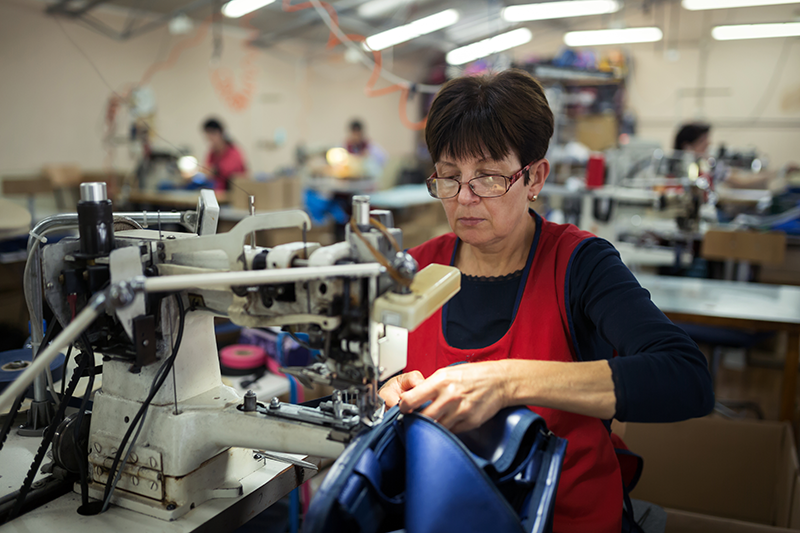
Palkka ja tulot
Palkka ja tulot ovat työmarkkinasuhteissa ja elämänlaadun kannalta keskeinen asia. Tämä seikka on saanut lisähuomiota EU:n tasolla kriisiin johtaneen taloudellisen ja yhteiskunnallisen kehityksen vuoksi.


Euroopan sosiaalisten oikeuksien pilarissa määritetään EU:n palkkoja koskevat sitoumukset: työntekijöiden oikeus oikeudenmukaiseen palkkaan, joka mahdollistaa kohtuullisen elintason; riittävän vähimmäispalkan varmistaminen; työssäkäyvien köyhyyden estäminen.
Eurofound raportoi säännöllisesti palkkaan ja tuloihin liittyvistä seikoista Euroopan muuttuvien taloudellisten olosuhteiden valossa.
Eurofound kokoaa palkkoihin liittyviä tietoja Euroopan työelämänseurantakeskuksen (EurWORK) avulla. Säännöllisen raportoinnin ansiosta saadaan työehtosopimuksen mukaista palkkaa koskevia pitkiä havaintosarjoja, joiden avulla voidaan seurata palkkasuuntauksia. Eurofound julkaisee säännöllisesti aihekohtaisia päivityksiä lakisääteisistä vähimmäispalkoista ja työehtosopimuksen mukaisesta palkasta. Lisäksi se seuraa kehitystä kansallisella tasolla palkanmuodostusmekanismien, tasa-arvoisten palkkojen, vaihtelevien palkkojen ja matalien palkkojen sekä sukupuolten palkkaerojen osalta.
Työelämää koskevat maaprofiilit sisältävät palkkoja koskevia kansallisen tason tietoja, ja niitä päivitetään säännöllisesti. EurWORK ylläpitää kahta palkkatietokantaa (katso alla olevat tietolähteet).
Eurofoundin Euroopan työpaikkojen seurantayksikkö (EJM) arvioi työllisyyden vaihteluja työkohtaisesti erilaisilla laadullisilla menetelmillä, palkka mukaan luettuna. Erityisesti se hankkii tietoa työllisyyden polarisoitumisesta eli siitä, missä määrin työllisyyden kasvu on todennäköisesti suurempaa palkkajakauman huipulla ja pohjalla kuin keskellä.
Eurofoundin tutkimuksilla seurataan myös EU:n palkkatilannetta. Palkka on keskeinen seikka työn laatua arvioivassa Eurofoundin tutkimuksessa. Euroopan työolotutkimuksessa (EWCS) palkka on yksi seitsemästä työn laadun indikaattorista. Euroopan työolotutkimuksessa raportoidaan myös sukupuolten palkkaeroista. Tutustu interaktiiviseen Euroopan työolotutkimustietojen visualisointityökaluun.
Euroopan elämänlaatututkimus (EQLS) seuraa tulojen vaikutusta elintasoon ja sitä, miten tuloerot liittyvät sosiaaliseen yhteenkuuluvuuteen ja hyvinvointiin. Siinä analysoidaan kriisin vaikutusta perheisiin tarkastelemalla pienituloisia perheitä, kotitalouksien velkoja ja köyhyysriskissä olevia ryhmiä. Euroopan elämänlaatututkimuksella kerätään tietoa myös eläkeläisten tuloista ja mahdollisuuksista työelämän jatkamiseen. Tutustu interaktiiviseen Euroopan elämänlaatututkimustietojen visualisointityökaluun.
Euroopan yritystutkimuksessa (ECS) tarkastellaan vaihtelevien palkkajärjestelmien käyttöä yrityksissä sekä kollektiivisten palkkasopimusten kattavuutta kyseisten yritysten työntekijöiden osalta. Tutkimus mahdollistaa vaihtelevia palkkoja ja palkkaneuvotteluja koskevien tietojen yhdistämisen työn organisointia, henkilöstöhallintoa, työntekijöiden suoraa osallistumista ja työmarkkinaosapuolten vuoropuhelua sekä suoritusta ja työpaikan hyvinvointia koskeviin tietoihin.






